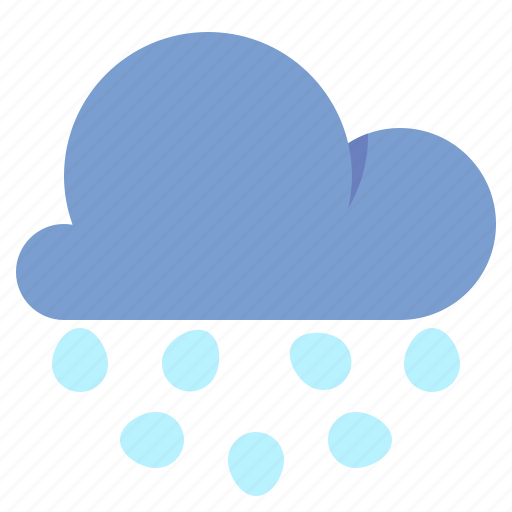Cold As Hail Or Hell: A Deep Dive Into The Chilliest Expressions And Their Origins
Have you ever found yourself saying "it's colder than hell" or "cold as hail" on a frosty winter morning? Well, buckle up because we're about to take a deep dive into these phrases, their meanings, and how they've become part of our everyday language. If you're someone who loves exploring the quirks of language, this article's got you covered. So grab a hot cocoa, and let's get started!
You know those moments when you step outside, and it feels like your soul might freeze right off your body? That's when phrases like "cold as hail" or "colder than hell" come in handy. But have you ever wondered where these expressions came from? Why do we compare cold weather to something as intense as hell? Stick around, and we'll unravel the mysteries behind these chilling sayings.
This article isn't just about the weather—it's about how we express ourselves when the temperature drops. We'll explore the history, cultural significance, and even some fun facts along the way. By the end of this, you'll have a whole new appreciation for the language of cold. Let's go!
Read also:Fotos De A Love Story Winery Your Dreamy Wine Destination
Daftar Isi
Cultural Significance of Cold Expressions
The Science Behind Feeling Cold
Read also:Jazmine Sullivan Concert 2024 Get Ready For A Night To Remember
What is Cold as Hail?
First things first, let's break down the phrase "cold as hail." Hail, for those who don't know, is those little icy pellets that fall from the sky during a storm. It's not just rain—it's like frozen rain that packs a punch. When we say "cold as hail," we're talking about temperatures that are so low, they make you feel like you're being pelted by tiny ice balls.
But why hail? Well, hail is one of the most extreme forms of precipitation. It's not just water—it's solid, icy, and cold enough to make you wish you'd never left the house. So when someone says it's "cold as hail," they're not exaggerating—it's legit freezing.
Now, here's the kicker: hail doesn't just happen anywhere. It requires specific weather conditions, like thunderstorms with strong updrafts. So when you're comparing the cold to hail, you're basically saying, "This is the real deal." And trust me, if you've ever been caught in a hailstorm without a jacket, you'll know exactly what I mean.
History Behind Cold Phrases
Humans have been using weather-related expressions for centuries. Back in the day, before we had weather apps and forecasts, people relied on their senses to describe the world around them. And when it came to cold weather, they didn't hold back. Phrases like "cold as hail" or "colder than hell" were born out of necessity—to convey just how brutal the weather could be.
Take "colder than hell," for example. This one has biblical roots. In many cultures, hell is often depicted as a fiery place. But in some traditions, it's also seen as a place of extreme cold. Think about it: if you're trapped in an icy wasteland with no warmth, it would feel pretty hellish, right? This duality of fire and ice in hellish depictions has influenced our language for generations.
As for "cold as hail," it's a more literal comparison. Hailstorms have been part of human experience for thousands of years. Farmers, travelers, and even poets have written about the terror of being caught in a hailstorm. So it makes sense that we'd use hail as a benchmark for cold weather.
Cultural Significance of Cold Expressions
Language is a reflection of culture, and these cold expressions are no exception. In colder climates, phrases like "cold as hail" are part of everyday conversation. They help people bond over shared experiences of freezing weather. But even in warmer regions, these expressions have found their way into the lexicon.
Think about it: movies, books, and songs often use cold weather as a metaphor for emotional states. A broken heart might feel "cold as hail," or a harsh breakup could leave you feeling "colder than hell." These expressions transcend geography—they tap into universal human emotions.
And let's not forget the cultural impact of literature. Writers like Jack London and Ernest Hemingway have used cold weather as a backdrop for their stories. Their descriptions of freezing landscapes have shaped how we think about cold and its power to shape our lives.
The Science Behind Feeling Cold
Now let's talk science. Why does cold weather feel so intense? It all comes down to how our bodies regulate temperature. When the air temperature drops, our skin loses heat faster than it can produce it. This triggers a response in our nervous system, making us feel cold.
- Our blood vessels constrict to conserve heat.
- We start shivering to generate warmth through muscle activity.
- Our metabolism kicks into overdrive to produce more heat.
But here's the thing: not everyone feels cold the same way. Factors like age, fitness level, and even mental state can affect how we perceive temperature. So while one person might say it's "cold as hail," another might just think it's a bit chilly.
Comparing Hail and Hell
So, which is colder—hail or hell? That depends on who you ask. In terms of actual temperature, hail can get pretty darn cold. Those ice pellets form at altitudes where the temperature is well below freezing. But when it comes to emotional impact, hell might take the cake.
Hell, as a concept, is often associated with despair and suffering. Whether it's depicted as fiery or icy, it's a place where warmth and comfort are nonexistent. So if you're comparing the two, it might come down to whether you value physical or emotional warmth more.
And let's not forget the cultural context. In some traditions, hell is seen as a place of eternal winter, where icy winds howl and snow never melts. In others, it's a fiery pit of flames. So the answer might vary depending on your perspective.
Modern Usage in Pop Culture
These cold expressions have made their way into modern pop culture in some pretty interesting ways. Songs, movies, and even memes use phrases like "cold as hail" or "colder than hell" to convey intensity. Think about those action scenes where the hero braves a hailstorm or the villain's lair is described as "colder than hell." It's all about creating a sense of drama and tension.
Social media has also played a role. Hashtags like #ColdAsHail or #ColderThanHell have become popular during winter storms. People use them to share their experiences of freezing weather or to joke about how tough they are. It's a way of connecting with others who are going through the same thing.
And let's not forget the memes. There's nothing like a good hailstorm meme to brighten up a gloomy day. Whether it's a picture of someone covered in hail or a witty take on how cold it is, memes have a way of making even the coldest weather feel a little warmer.
Psychology of Cold Weather
Cold weather doesn't just affect our bodies—it affects our minds too. Studies have shown that exposure to cold can influence our mood, behavior, and even decision-making. When it's "cold as hail" outside, we might feel more irritable or less motivated to do things. But on the flip side, some people thrive in cold weather, finding it invigorating and energizing.
Interestingly, the way we talk about cold weather can also affect how we feel about it. If we constantly describe it as "colder than hell," we might start to dread it more. But if we frame it as a challenge or an opportunity to enjoy winter activities, it can become something to look forward to.
So the next time you're tempted to say it's "cold as hail," think about how that phrase might shape your experience. Maybe instead, you could say, "It's chilly out there, but it's the perfect weather for skiing!" Small changes in language can make a big difference in how we perceive the world around us.
Tips for Staying Warm
Okay, so now that we've talked about the language of cold, let's get practical. If you're dealing with "cold as hail" weather, here are some tips to stay warm:
- Layer up! Wearing multiple layers of clothing traps heat and keeps you insulated.
- Invest in a good pair of gloves and a warm hat. Up to 40% of body heat can be lost through your head and hands.
- Drink warm beverages like tea or hot chocolate to keep your core temperature up.
- Stay active. Moving your body generates heat and keeps your blood flowing.
And don't forget the basics: check the weather forecast, dress appropriately, and make sure your home is well-insulated. A little preparation can go a long way when it comes to staying warm in cold weather.
Fun Facts About Cold Weather
Here are a few fun facts to impress your friends the next time it's "cold as hail" outside:
- Hailstones can reach sizes up to 8 inches in diameter! That's bigger than a grapefruit.
- The coldest temperature ever recorded on Earth was -128.6°F (-89.2°C) in Antarctica.
- Some animals, like penguins and polar bears, have special adaptations to survive in extreme cold.
- Humans can survive in cold weather for short periods, but prolonged exposure can lead to hypothermia.
So the next time you're complaining about the cold, just think about how some animals thrive in conditions that would make us shiver.
Conclusion and Final Thoughts
So there you have it—a deep dive into the world of "cold as hail" and "colder than hell." These phrases might seem simple, but they carry a lot of history, culture, and science behind them. Whether you're using them to describe the weather or your emotions, they're a testament to the power of language to convey intensity.
As we wrap up, I want to leave you with a challenge: the next time you're tempted to complain about the cold, try to find something positive about it. Maybe it's the perfect weather for a cozy movie night or a chance to try out a new winter activity. After all, life's too short to let a little cold get you down.
And don't forget to share this article with your friends! Who knows, you might just start a conversation about the coolest cold weather expressions out there. Stay warm, stay curious, and keep exploring the world around you.
Article Recommendations


